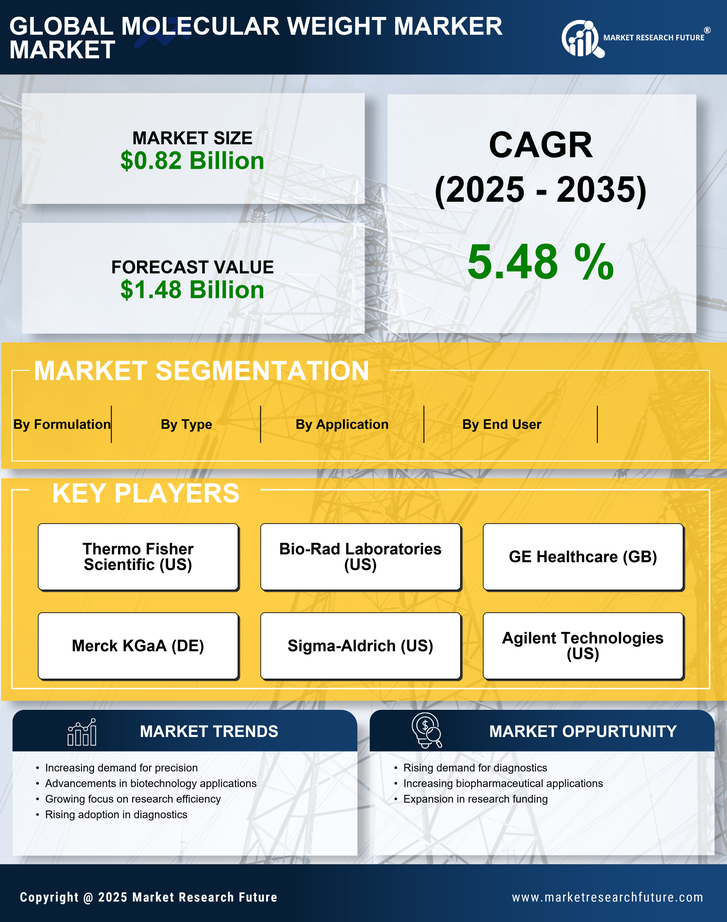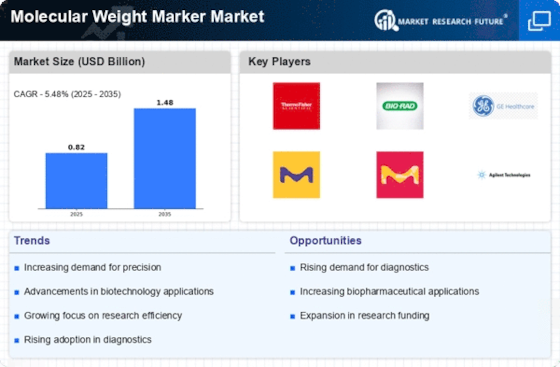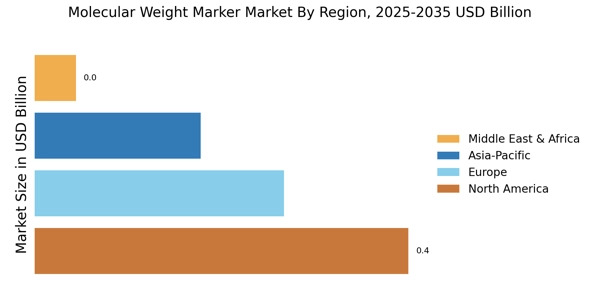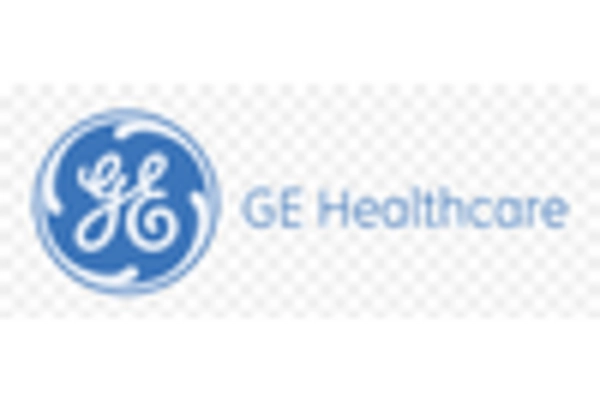Expansion of Research Applications
The Molecular Weight Marker Market is benefiting from the expansion of research applications across various fields, including biotechnology, pharmaceuticals, and academic research. The versatility of molecular weight markers allows for their use in diverse applications such as protein analysis, nucleic acid quantification, and quality control in biomanufacturing. This broad applicability is driving an increase in demand from research institutions and laboratories. Recent data indicates that the biotechnology sector alone is projected to grow at a rate of 7% annually, which will likely bolster the molecular weight marker market as researchers seek reliable tools for their studies. The ongoing exploration of new molecular entities further fuels this growth.
Rising Demand in Personalized Medicine
The Molecular Weight Marker Market is witnessing a notable increase in demand due to the growing emphasis on personalized medicine. As healthcare shifts towards tailored therapies, the need for precise molecular characterization becomes paramount. Molecular weight markers play a crucial role in the development of biopharmaceuticals, enabling researchers to identify and quantify biomolecules effectively. This trend is further supported by the increasing investment in research and development activities aimed at discovering novel therapeutics. According to recent estimates, the market for personalized medicine is expected to reach USD 2 trillion by 2030, thereby significantly impacting the molecular weight marker sector as it aligns with the broader goals of precision health.
Increased Funding for Scientific Research
The Molecular Weight Marker Market is poised for growth due to increased funding for scientific research initiatives. Governments and private organizations are allocating substantial resources to support research in life sciences, which includes the development and application of molecular weight markers. This influx of funding is facilitating advancements in research methodologies and technologies, thereby enhancing the capabilities of molecular weight markers. For instance, funding for genomics and proteomics research has seen a significant rise, leading to a greater demand for molecular weight markers in these fields. As a result, the market is expected to expand as researchers leverage these tools to advance their scientific inquiries.
Growing Awareness of Quality Control Standards
The Molecular Weight Marker Market is influenced by the growing awareness of quality control standards in laboratory practices. As regulatory bodies impose stricter guidelines on the quality and reliability of research outputs, the demand for high-quality molecular weight markers is increasing. Researchers are now more inclined to utilize markers that meet established standards, ensuring the accuracy and reproducibility of their results. This trend is particularly evident in the pharmaceutical industry, where compliance with regulatory requirements is critical. The market for molecular weight markers is likely to benefit from this heightened focus on quality, as laboratories seek to enhance their credibility and ensure the integrity of their research.
Technological Advancements in Molecular Weight Marker Market
The Molecular Weight Marker Market is experiencing a surge in technological advancements that enhance the precision and efficiency of molecular weight determination. Innovations in mass spectrometry and gel electrophoresis techniques are leading to more accurate and reproducible results. For instance, the introduction of high-resolution mass spectrometers has improved the ability to analyze complex biological samples, thereby expanding the application scope of molecular weight markers. Furthermore, automation in laboratory processes is streamlining workflows, reducing human error, and increasing throughput. As a result, the market is projected to grow at a compound annual growth rate of approximately 6% over the next five years, driven by these technological improvements.


















